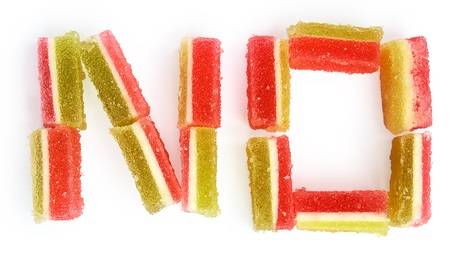Ah, the holiday season. Time to buy presents, spend time with loved ones, and deal with being surrounded by endless amounts of baked goods, sweets, and candies. Any office this time of year is starting to fill up with baskets of calorically-dense goodies, and there are bound to be tons of cupcakes, cookies, and candy canes lying around at holiday parties. Coupled with the stresses of the season, it’s no wonder that a lot of us, even those of us who lead an incredibly healthy lifestyle, end up loading up on sugar much more than we usually do.
What strategies can we use to avoid this pleasure trap? I’ve got a few solutions that have worked well for me in the past, and I’d like to share them with you.
Tip #1: Reduce Your Caffeine and Alcohol Consumption
The rollercoaster of energy and hydration levels stemming from drinking caffeine in the morning and alcohol in the evening can make anyone more susceptible to sugar cravings, so watching your intake of these liquids can help control your desire for sweets. Moreover, some studies have suggested that drinking coffee can impair the body’s ability to control glucose levels.1
Tip #2: Drink More Water
This goes hand in hand with the previous tip, since dehydration can sometimes manifest itself as sugar cravings. If you find yourself staring at the plate of cookies in your office kitchen, have a glass of water and wait a few minutes to see if you’re still pining for the sugary stuff as much.
Tip #3: Eat Plenty of Fruit and Sweet Vegetables
The natural sugars in whole foods such as berries, apples, and sweet potatoes can help satisfy your sweet tooth, and the high fiber content will help to fill you up. These naturally-occurring sweet foods are far better options compared to confections and baked goods.
Tip #4: Abstinence Is the Best Policy
 If you can really eat one cookie or piece of candy and leave the rest, have at it, but most of us are unable to do this. It turns out that consuming foods with a high glycemic index may fuel addictive cravings and hunger.2 So instead of telling yourself “I’ll just have one,” you’re better off staying away from the sweet stuff altogether.
If you can really eat one cookie or piece of candy and leave the rest, have at it, but most of us are unable to do this. It turns out that consuming foods with a high glycemic index may fuel addictive cravings and hunger.2 So instead of telling yourself “I’ll just have one,” you’re better off staying away from the sweet stuff altogether.
Tip #5: Hit the Gym, Trail, or CrossFit Box
Continued physical activity helps balance blood sugar levels, reduces tension, and boosts energy. All of this reduces your desires for sugar.
Tip #6: Find Time to Relax and Get Your Sleep
How long and how well we sleep plays a role in our susceptibility to hyper-palatable foods. The worse we sleep, the more likely we are to overeat.3 So no matter how stressful the holidays may seem, be sure to make adequate sleep a priority.
Tip #7: Find Sweetness in Your Life
This may sound hokey, but cravings might not always be a sign that your body needs sugar or sweets. Cravings sometimes have psychological components, so take some time to look introspectively and make adjustments accordingly. Finding balance in your life might help balance out your desire for sugar.
References:
1. Moisey LL, Kacker S, Bickerton AC, Robinson LE, Graham TE. ., “Caffeinated coffee consumption impairs blood glucose homeostasis in response to high and low glycemic index meals in healthy men,” American Journal of Clinical Nutrition. May 2008.
2. Lennerz BS, Alsop DC, Holsen LM, Stern E, Rojas R, Ebbeling CB, Goldstein JM, Ludwig DS. 2013., “Effects of dietary glycemic index on brain regions related to reward and craving in men,” American Journal of Clinical Nutrition. June 26 2013.
3. St-Onge MP, McReynolds A, Trivedi ZB, Roberts AL, Sy M, Hirsch J, “Sleep restriction leads to increased activiation of brain regions sensitive to food stimuli,” American Journal of Clinical Nutrition. February 22 2012.
Photos courtesy of Shutterstock.






